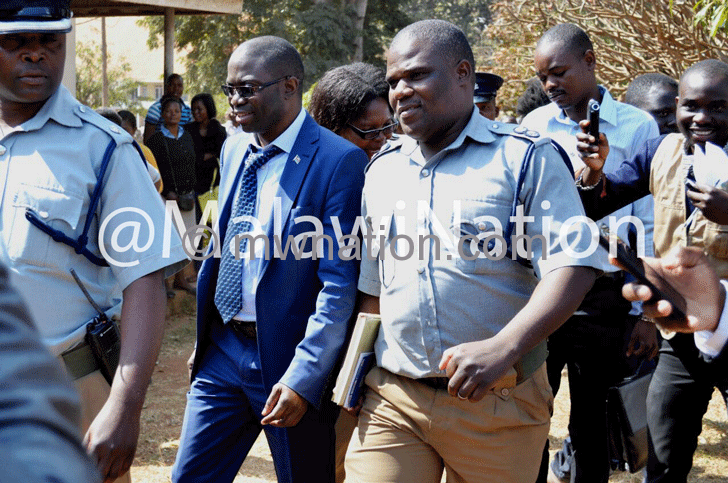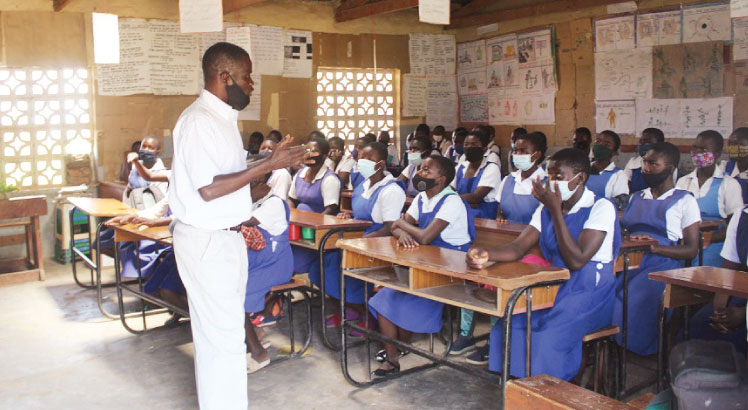Kasambara’s trial: The untold story
The guilty verdict handed out by the high court to flamboyant lawyer and former Attorney General Ralph Kasambara, SC is not simply a matter of the law taking its course.
It is so much more than that. In the excitement that gripped the nation on the day of the verdict-the verdict was broadcast on no less than two television stations and there were running commentaries online and social media-it is easy to join the bandwagon and start analysing the verdict, the evidence and the lawyers’ arguments.

I have heard and read many such excited analyses. Back in my active lawyering days, I would have been equally excited to read the judgment, critique the judge and offer an opinion on whether the verdict was deserved, supported by the weight of the evidence or whether the judge erred in his reliance on call logs and Kasambara’s forthcoming appeal should be anticipated with bated breath.
But since I moved on, I must glean from this exciting saga some important lessons and observations that might not be obvious at first glance.
Judicial courage
The Kasambara case has shown us once again that it is possible for our judges to be brave and courageous enough to handle sensitive and politically volatile cases.
This is an important and necessary element in a country with a weak governance framework.
The country’s judiciary hopefully remembers that it is probably the last refuge of the Malawian citizen victimised by a greedy and self-centred executive too bent on unscrupulous plunder of public funds to care about serving its citizens and a parliament betraying its electorate because of greed, weakness and fear.
In this regard, this display by the judiciary is an important victory for our governance system.
The rumours that started floating around soon after the glitzy lawyer was charged were that our judges were shying away from handling the case, offering one excuse after another, not having the courage to preside over a case that was certainly one of a kind, involving an accused that had a reputation for being apparently a brilliant and rather crafty and ruthless customer.

Some said the case was never going to see the light of day, that justice would never really be served and that chances of the trial reaching completion-if it ever got started at all-were few and far between.
There would be no trial for Kasambara, they said. He was too clever and too smart for that, they said.
It appears they were wrong. It appears these rumours were either simply idle talk or wishful thinking by Kasambara’s fans.
It is important to commend the judiciary and perhaps the judge specifically for courageously and rather efficiently seeing the matter through.
More importantly, the role of the victim, former budget director Paul Mphwiyo, as a state witness should not be overlooked.
It must have taken a lot of courage after an attempt was made on his life for him to come forward and testify against his attackers-who were on bail and could do anything!
They had after all, tried it before! There were stories of his being harassed, and his mother’s house being attacked. It could have been intimidation or mere coincidence.
Either way, he went ahead in spite of the probable post-traumatic stress. A mature democratic dispensation needs such courage from witnesses as well as judges in order to have a justice system that people can trust and count on to see justice not only done but also seen to be done.
Above the Law
In as much as the state has shown to be capable of bringing highly popular characters to face justice, it is, however, still the case that this only happens when you are an enemy of whatever political dispensation prevailing at the time.
It is not idle speculation to suggest that had Kasambara been connected to the ruling Democratic Progressive Party (DPP), he probably would never have come to a similar fate as he has done in this case.
We must remember that this case was started in the previous political dispensation when Joyce Banda was president. Thus, from a governance perspective, there is still more to be done in ensuring that no one in the country is above the law.
I recall that the matter proceeded in a haphazard fashion-especially after Kasambara declared that he would call then president Joyce Banda herself as one of his witnesses.
There was excitement that in the course of the trial, a lot more secrets of Cashgate and Banda’s alleged involvement in it would be revealed.
Could that have been the reason the matter was only pursued earnestly when Joyce Banda was deposed and the DPP took over power? Could the DPP government have been pushing for the case in the hope that it would produce some political benefits? This is not an idle theory.
There have been many allegations of criminal activity involving DPP sympathisers in the past two years and none of them have been investigated, let alone charged or prosecuted.
As much as the Kasambara trial is a case of justice probably running its course, it is also an unfortunate underlining of the governance deficiency in the country-the fact that when you are supporting the ruling party you are untouchable and above the law, and that for certain people to eventually pay for the many criminal activities they have committed in the country, we all will have to wait for them to fall out with the ruling potentates.
The cause of politicians to constantly prostitute their morals and cross the political floor in favour of the ruling party can be explained in part by their desire to avoid being investigated and prosecuted if an adverse political dispensation takes over. This pollutes our politics and severely compromises the country’s governance framework.
Contradictions
There is a question that is required in most murder trials that was not fully and clearly answered in the Kasambara trial. This is the question of motive.
If Kasambara truly conspired with two others to murder Mphwiyo, what was their motive?
This is an important question. In my own earlier investigation into Cashgate, I had suggested that in spite of some arguments to the contrary, it was becoming clear that Mphwiyo was shot because he was probably the one who uncovered Cashgate. The prosecution in the Kasambara trial seemed to agree.
In their case, Mphwiyo was about to expose Kasambara’s role in the cashgate scandal and that was the motive behind the attempt on his life. But if this was the motive and the prosecution truly believe that this was the reason for Kasambara conspiring to murder Mphwiyo, why is the same prosecutor also accusing Mphwiyo of Cashgate related offences in a separate case also currently in the courts?
Are we to believe that Mphwiyo, the victim of a murder conspiracy and an attempt on his life for fighting Cashgate, is also its mastermind and instigator? It is a sad contradiction for the future as it may discourage other whistle-blowers.
A future potential whistle-blower may decide to keep their mouth shut for fear of being considered criminal masterminds!
If in our governance system, we allow for this kind of contradictory thinking to continue, it will be very difficult for the country to move forward, especially in matters of corruption and government malfeasance.
Those that are given the responsibility of safeguarding the country’s criminal justice system need to be more competent and more consistent in their thinking.
The Kasambara trial may have scored points for the government, but for me, it leaves a rather conspicuous governance sour taste in the mouth.






Allan, you are right on the motive. There are more questions left unanswered in Kasambara’s case. If this is what justice means then it is not justice at all, but a politico-juridical vendetta at its best. The popular term used in legal fraternity – “proving beyond reasonable doubt” appears no more a dictum for courts. Kasambara’s case has brought a new term on which courts will base their verdicts: “a hearsay is equally the same as proving beyond reasonable doubt.” I’m so convinced that the Learned judge Mtambo did his work thoroughly to conceptualize this theory, which is not different from what traditional courts that were patronized by traditional chiefs during Dr Kamuzu Hastings Ackim Banda, used to punish political opponents (read Orton Chirwa vs the state). It is time to resuscitate those courts to address the deficiency that the judiciary is suffering from.